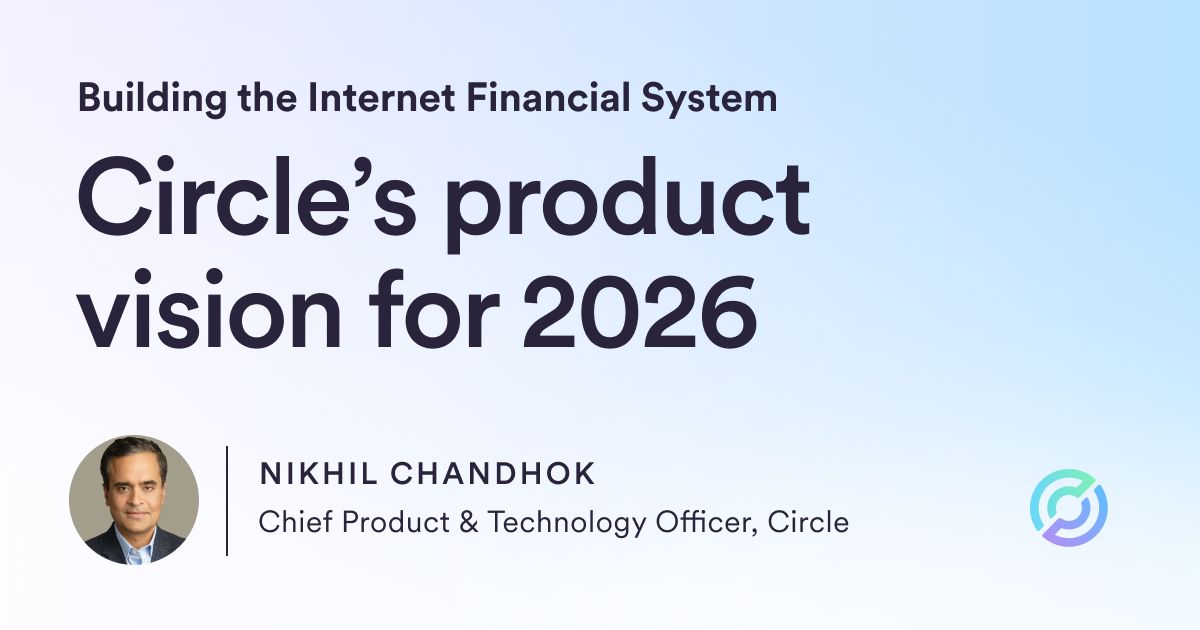
Building the Internet Financial System: Circle’s Product Vision for 2026
January 29, 2026
Built for rapid, global payments and 24/7 financial markets, USDC is a regulated, digital currency that can always be redeemed 1:1 for US dollars.
Create the next revolutionary app powered by digital currency and secure Web3 wallets with docs and resources that make building faster and easier.
We’re working with global partners to build the internet financial system, accelerating commerce and bringing financial services to billions worldwide.